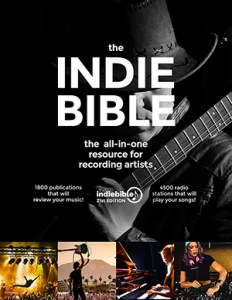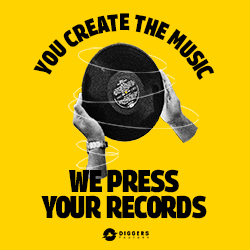How to Get Gigs
REACH OUT TO US
On one hand, all musicians understand that gigs are important: if you want to be heard, part of that means playing in front of an audience. Musicians may prefer live time to studio time or vice versa, but whether you shine in the spotlight or suffer from acute stage-fright, performances are part of being a musician.
On the other hand, the importance of gigging often gets left by the wayside, because as musicians (and human beings), we tend to be focused on more concrete and quantifiable measures of success: Are you in the charts? Are you getting rotation? Are you in any magazines?
Charts, rotation, and magazines are all important; but forget about those things, just for a second. It’s no good stressing about your strategy for a publishing deal if you haven’t even written the book yet, and the same applies to music. Play some actual gigs first, then worry about getting signed to a label. How? To answer that question, here’s our guide on how to get gigs.
How to Get (More) Gigs
Maybe you’ve got a few dozen gigs under your belt, but you’re unhappy with the frequency of the opportunities that come your way. Maybe you’re just starting out, and you’ve never played so much as your cousin’s bar mitzvah. Whether you’re looking to increase your gig output — or just get your first one going at all — we’ve assembled some tips on how to boost your gigging.
Put On a Show
Our first tip is a little bit of a cheat: put on your own show. Playing any gig never hurts, even if it’s a gig you coordinated yourself. You’re unlikely to draw much of a crowd playing at the edge of mom and dad’s lawn, but there are other venues you can take to. For example, colleges and universities often host open mic events and small concerts; and even if nothing’s open in that regard, you might be able to negotiate playing a gig on the quad or inside the school’s space when a particular room or building isn’t in use. Small community theaters and public rec spaces can also be a good resource.
Make a Demo and Press Kit
Let’s say you just put on an amazing gig. You impressed a talent agent, or a nightclub owner, and they want to spread the word about you back at their station, label, venue, etc. Unfortunately, they will have little to remember you by, because you have no demo or press kit to offer them. Don’t get into a situation where a lack of preparedness undermines your efforts and talent.
A demo is a recording — usually physical, sometimes virtual — which typically contains three or four tracks to “demonstrate” (hence the name) your act. Since demos don’t have to be radio-ready, they can include covers, instrumentals, or just about anything you want, so long as A.) it reflects your sound, and B.) is of a decent audio quality. If your demos exist only as files, you might want to invest in some cheap flash drives, which you can physically distribute in a pinch.
As for a press kit, ideally it should contain a brief biography, contact information, a set list, some high-quality photos (8″x 10″ is ideal), and any positive write-ups you’ve received. (If your only review tears you apart, maybe leave that one out for now.)
Not only can you hand demos and press kits out to people after they take an interest in you, more importantly you can use them as “teasers” to help get gigs. Send them out to bars, booking agents, coffeehouses — anywhere you think you might be able to play.
Harness the Internet
The internet changed the world, and that includes the career path of aspiring musicians. Thanks to the magic of the internet, emerging acts have the power to display and promote themselves at will. Use the web to put yourself out there. Make a site for your band. If you can’t afford a URL (or even if you can), make pages on Facebook, Soundcloud, PureVolume — as many as you can stomach.
You can also use the internet to reach out to people who can help you; for example, shooting a concise and polite email over to an indie music blog.
Learn When to Say No
Most beginning musicians think they should say “yes” to every gig they can possibly find. They know they’re at the bottom of a long vertical climb, and saying “no” when opportunities are uncertain can feel counter-intuitive and downright scary. Nonetheless, you need to trust us when we say that saying yes to everything will hurt you more than help you in the long run.
For example, you don’t want to associate yourself with inappropriate venues. If you’re in a metal band, and you accept a gig at a venue that traditionally leans toward hip hop or EDM, chances are you’re going to confuse (and possibly disappoint) audiences, critics, and booking agents alike.
Playing too often is another gigging faux pas. Again, we know it’s uncomfortable to pass up a gig when you don’t know where the next one is coming from, but cap yourself at a maximum of one gig every six weeks. You’re probably safe to under- or overshoot by a few days, but don’t veer too far from this guidepost. If you gig too often, people will simply stop caring. “Oh, Band X again? I’m tired of seeing their shows.”
It’s similar to the economic concept of supply and demand: when supply exceeds demand, the product or industry in question goes into decline, sitting around unused and unwanted. Don’t let your band turn into the musical version of the dot-com craze.
Network, Network, Network
Three words: network like crazy. You never know who’s connected (or connected to someone who’s connected), especially when you’re hanging out in an environment with a disproportionately high concentration of music fans, like a concert or an open mic night. The path toward musical success is not linear and predictable like climbing through the ranks of a banking corporation: it’s largely a matter of being in the right place at the right time. Remember those demos and press kits from before? Keep your backpack stocked as you’re doing your networking.
Gigs are critical, but landing them can be a challenge. If you take care to network, come prepared, accept some of the gigs you’re offered, exploit the internet, and put on your own shows from time to time, you have a huge leg up on getting in front of an audience.


